31 January 2022

January, the new year, and traditionally the time for thinking about resolutions and getting back on track or having a fresh start - whether that be for your health or for your finances. You might start to think about how your annual salary is paid and plan how you might spend it during the year.
13th and 14th Salaries
13th and 14th salaries are additional compensation that companies pay to their employees beyond their regular salary terms - as either voluntary, performance-based bonuses or as mandatory payments equal to a month's salary - and are becoming increasingly popular in Europe.
Different companies pay and calculate the annual salaries they offer in different ways. With a 13th or 14th salary, the most common way is to divide the total annual salary by 12 and add the amount to the employee's salary at the designated time. And if that country also has a mandatory 14th salary, then this process would be repeated twice.
Other countries break down the total annual salary into 13 or 14 parts - and in these cases the additional pay is already factored into the employee's gross pay.
Employee survey
To find out more about people's salary preferences and how they would prefer to be paid, Paylab.com carried out an international survey with a sample of 17996 employees from 9 different countries - Bosnia and Herzegovina (BA), Bulgaria (BG), Croatia (HR), the Czech Republic (CZ), Hungary (HU), Lithuania (LT), Romania (RO), Slovakia (SK) and Slovenia (SI).
The survey respondents from these European countries came from a range of position levels - from unskilled workers right through to top management; salary levels - a mix of low, mid and high earners; and ages - from those under 25 to those 55 years and over.
The employees surveyed were given three options on how they would prefer to receive their annual salary:
- To divide the annual salary evenly over 12 months
- To divide the annual salary into 12 salaries + 13th salary
- To divide the annual salary into 12 salaries + 13th salary in summer and 14th salary at the end of the year
The results were interesting as they were fairly mixed, and there was no overwhelming majority preference from any of the countries on how they prefer to be paid.
One thing that was true for respondents from all 9 of the countries surveyed, no matter what their age, salary level or position, was that the second option of dividing the salary into 12 and then having a 13th bonus salary was the least popular way of being paid.
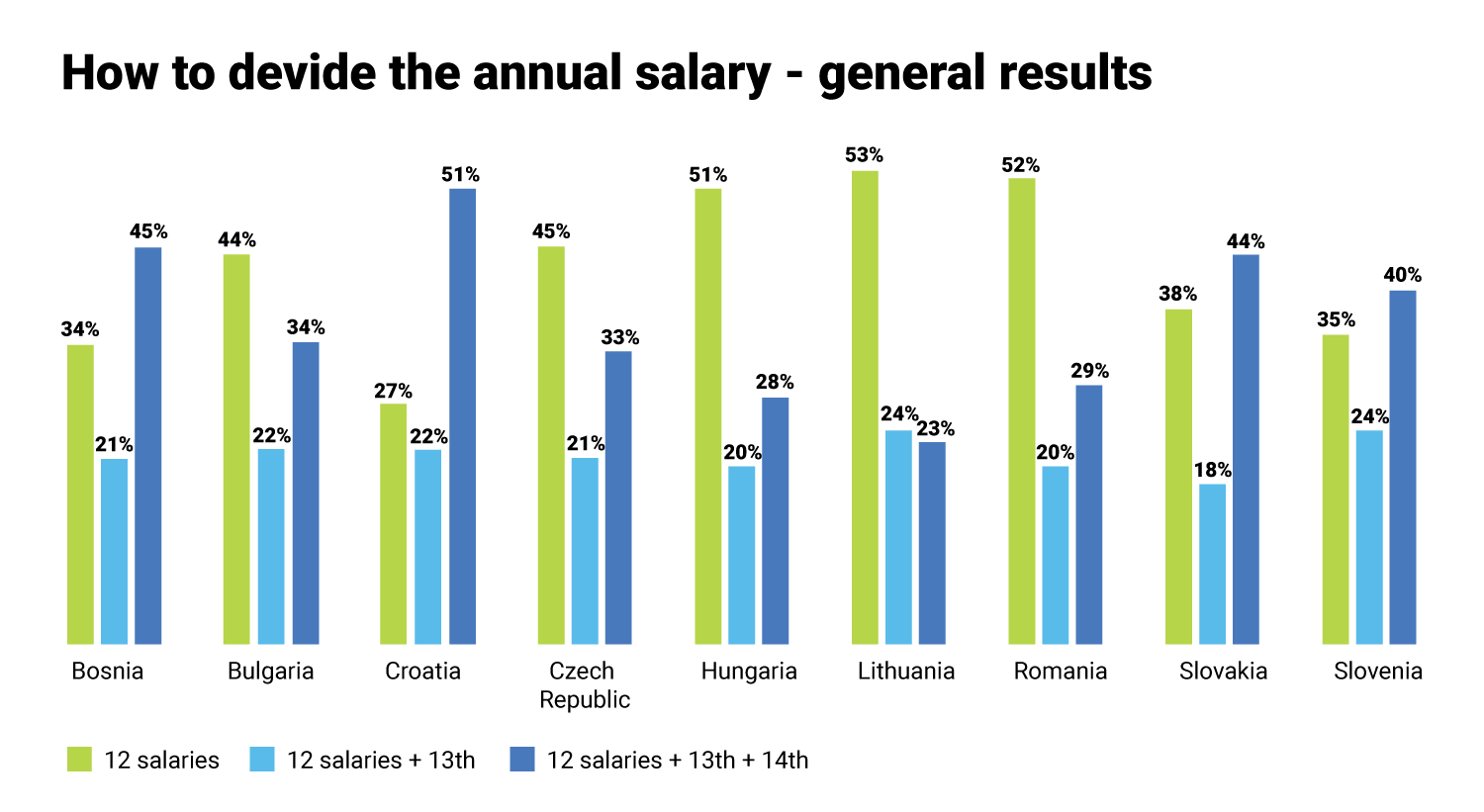
For Bosnia and Herzegovina, Croatia, Slovakia and Slovenia, the third option of having two bonuses throughout the year was the clear preference.
For all of the other countries - Bulgaria, the Czech Republic, Hungary, Lithuania and Romania - the first option of dividing the salary evenly between the 12 months of the year was the most popular choice.
How do the highest earners prefer to be paid?
For those questioned in the highest salary bracket (>9decil) the results were a mixed bag. We can see that the 13th salary bonus was the least popular way of receiving their salary, but there was a real mix of preferences for the first and third options.
For example, 52% of Croatian high earners preferred the 13th and 14th package while 27% of them preferred the 12 equal months option. On the other hand, around 50% of the high earners in Lithuania, Hungary and Romania preferred the 12 equal months option and about a quarter of them preferred the 13th and 14th salary package.
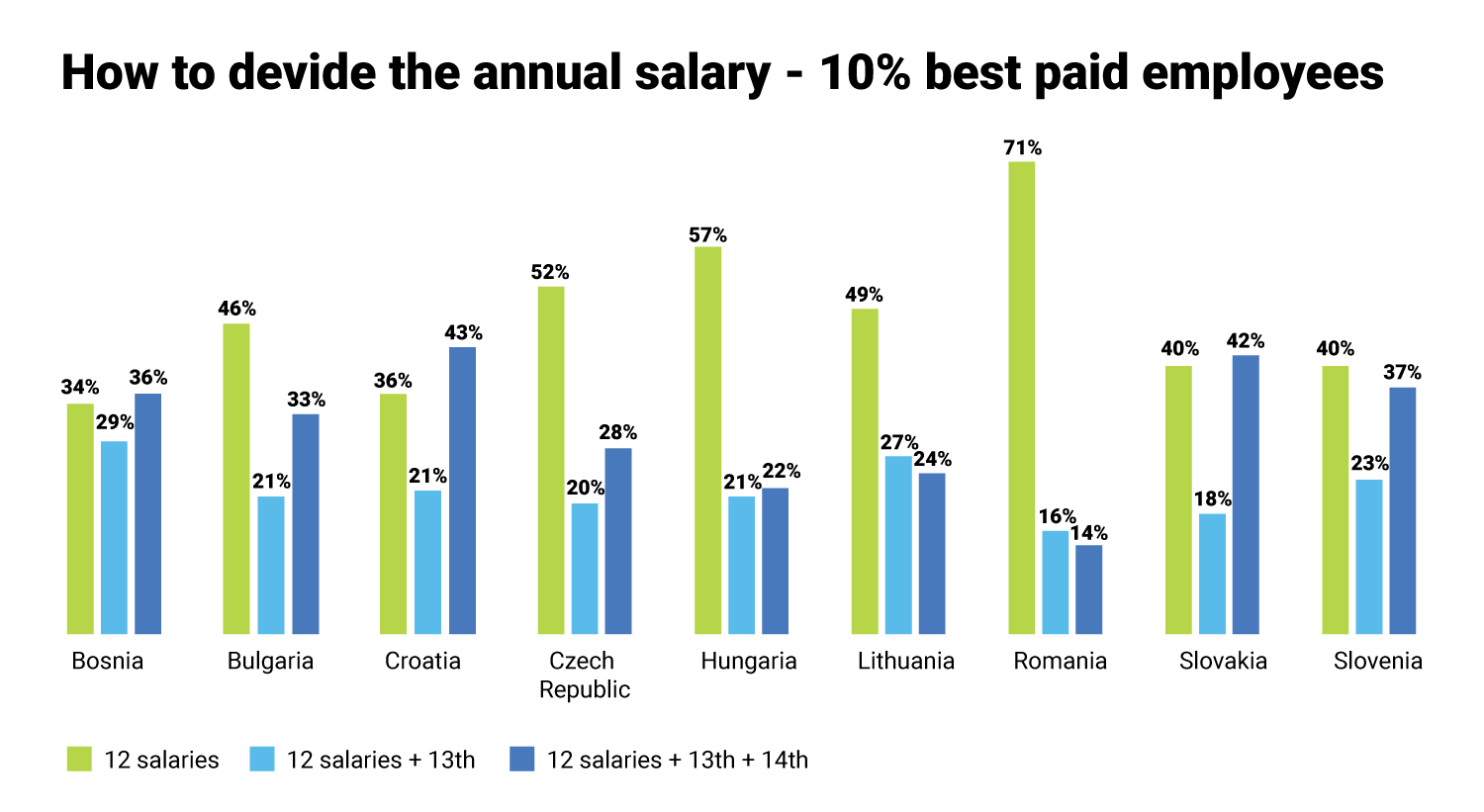
What do the lowest earners think?
For most of the employees in the lowest salary range (<1decil) the option to be paid their salary evenly over 12 months is the most popular choice and was a clear favourite for the low earning Romanians (71%).
Only a few countries seemed to prefer the 3rd choice (Bosnia, Croatia and Slovakia) with two bonus payments throughout the year, but by no significant difference.
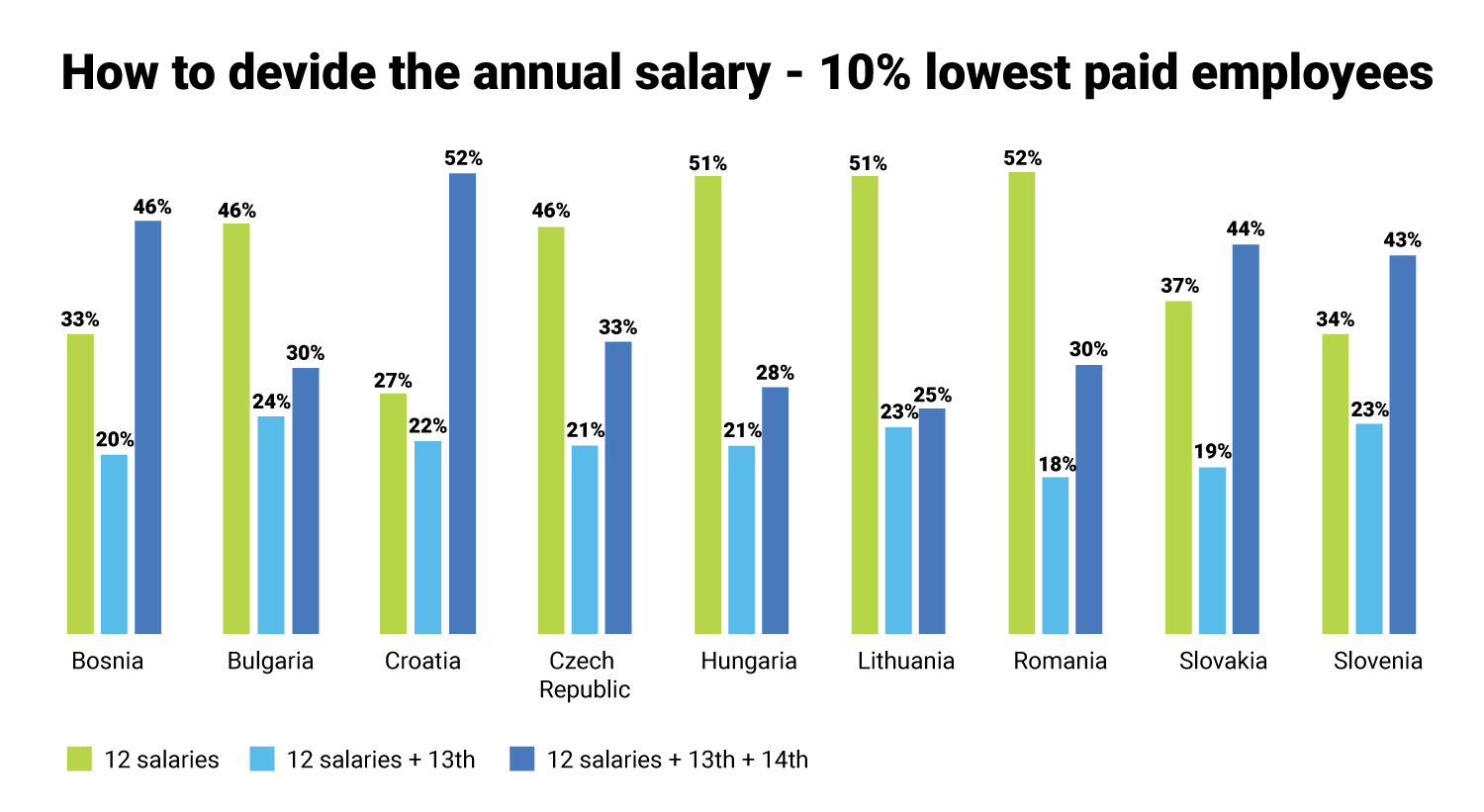
Have younger employees got a preference on how they are paid?
As with all the other categories, the younger generation (18-24 years and 25-35 years) are least keen on the 13th salary, but again there is a real split between the results for the first and third options.
For those aged up to 24 years in most of the countries asked, they preferred the more even 12-month split offered in option 1. The younger Croatians and Slovakians, however, did prefer the 13th and 14th bonus payments.
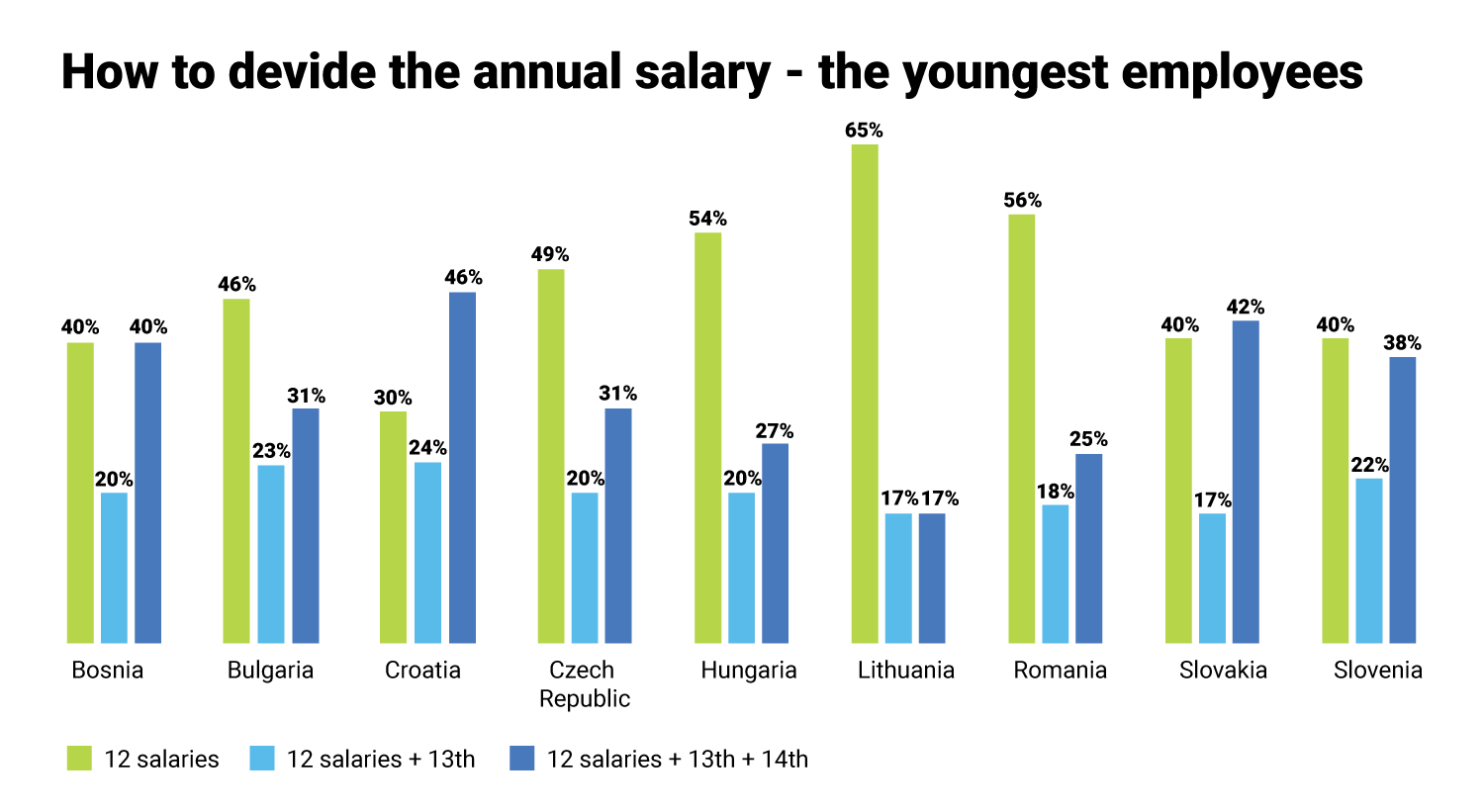
Do the older generation prefer more bonuses?
Seven out of the nine countries' older employees (55 years +) actually preferred the first option of being paid evenly throughout the year. There was a big difference for the older Croatians, however, as 59% of them selected option 3 with the 13th and 14th bonus payments and only 25% of them preferred option 1. It was a 50/50 split for the oldest employees in Bosnia and Herzegovina.
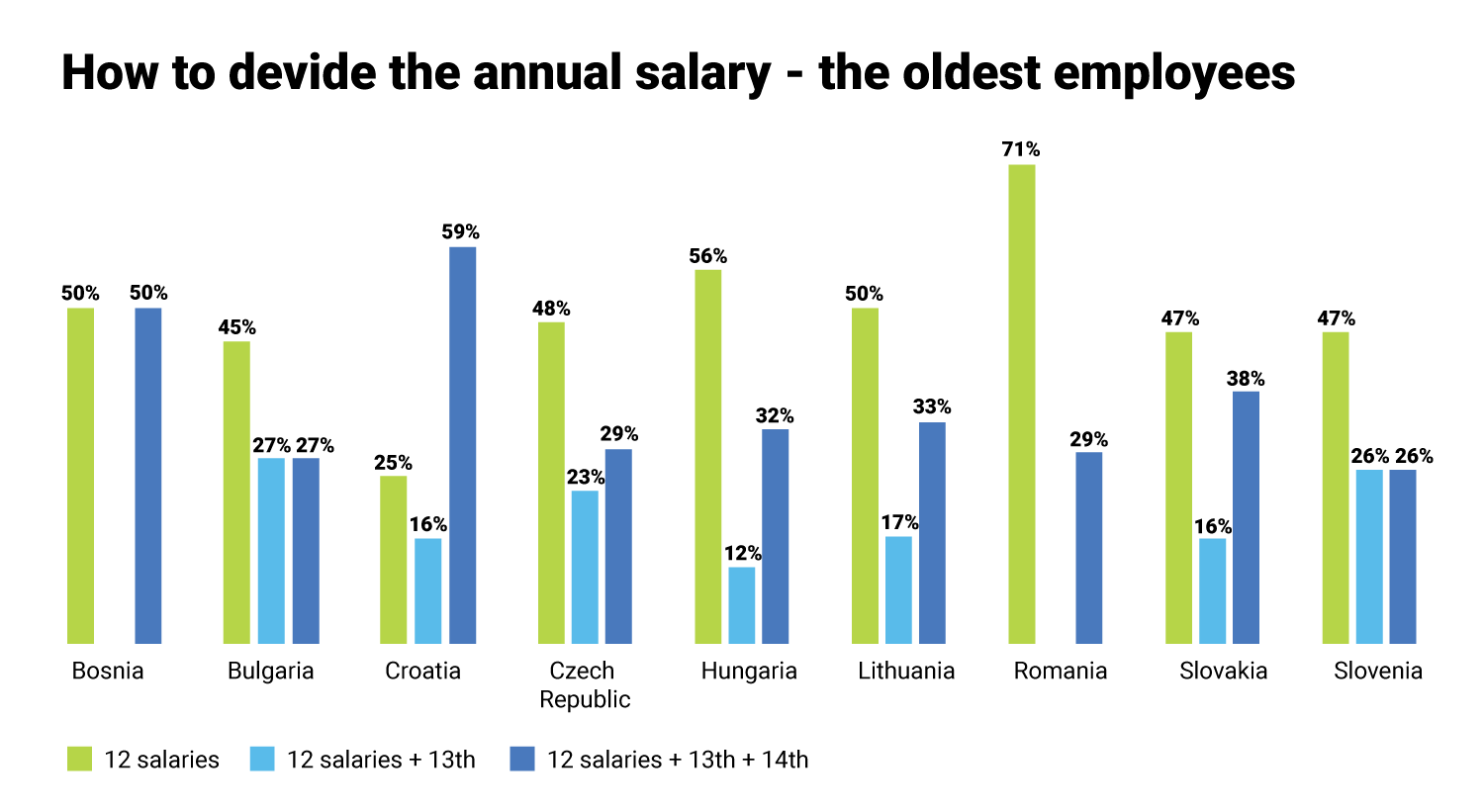
What do clerical workers think?
Again the picture is mixed for the clerical workers who answered the survey. Clerical employees from Bosnia, Bulgaria, Croatia, Slovakia and Slovenia opted for the third choice of a 13th and 14th salary, whereas those from Hungary, Lithuania and Romania preferred the 12 equal payments across the year. 39% of Lithuanian clerical workers also preferred the 13th salary option in contrast to all of the other countries.
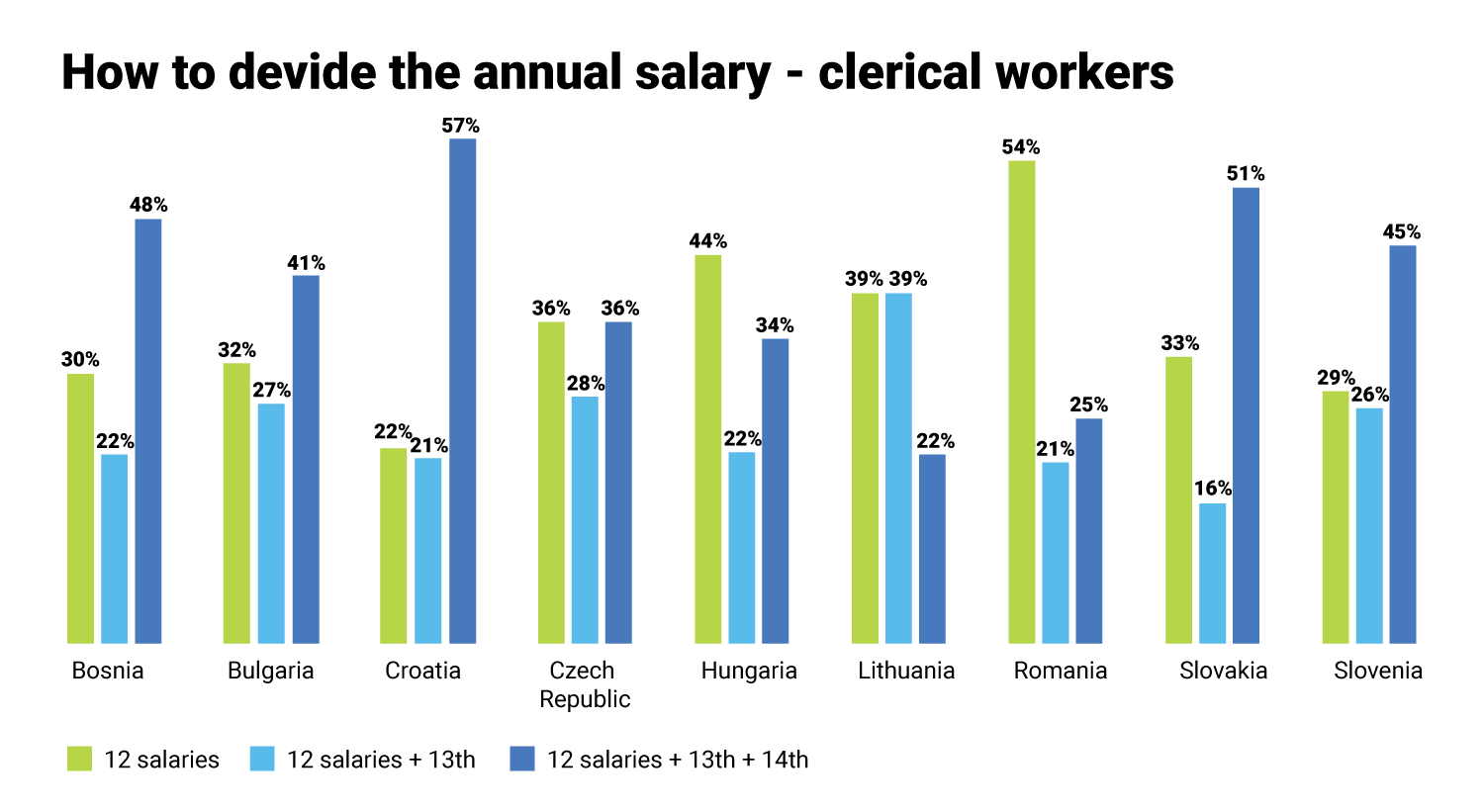
Do top management expect a bonus?
Interestingly, most of those questioned in the top management position preferred the 12 payments evenly split across the year (6 out of the 9 countries). Only those top managers from Croatia, the Czech Republic and Slovenia would select the bonus 13th and 14th payments.
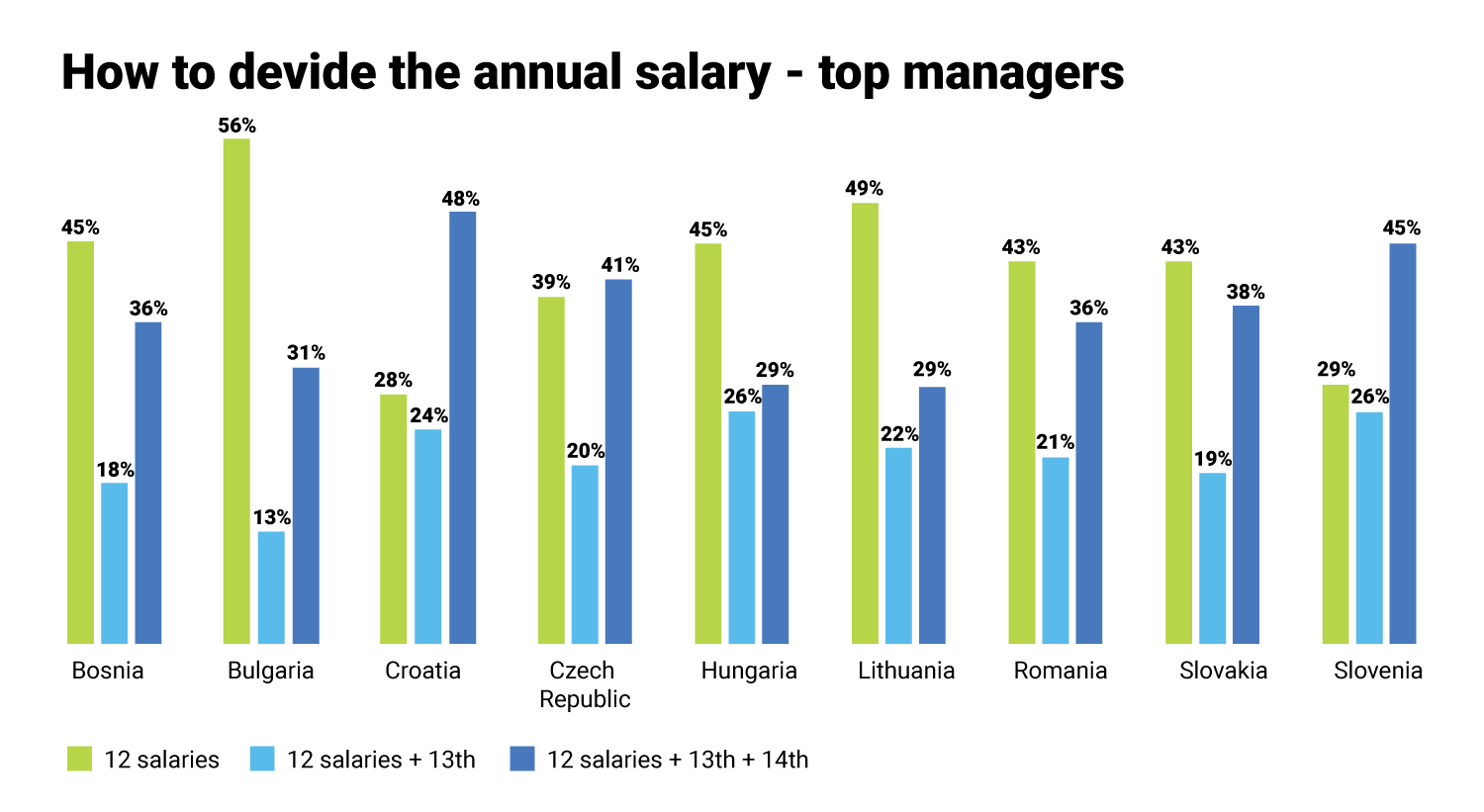
Conclusions
There really doesn't seem to be a right or a wrong way when it comes to the three options on how employees prefer to receive their annual salary - it is very clearly a personal choice for each individual, and will of course depend on which company, industry and country you are living and working in.
